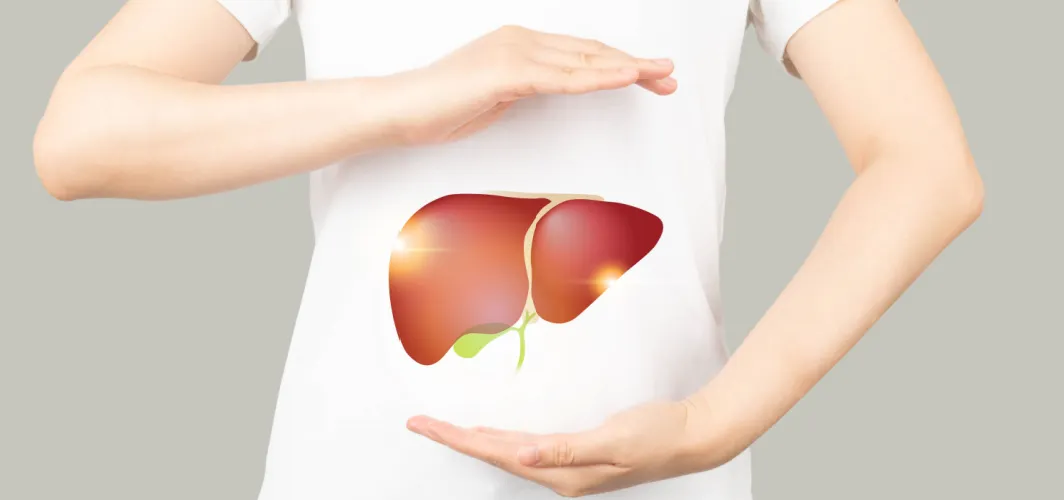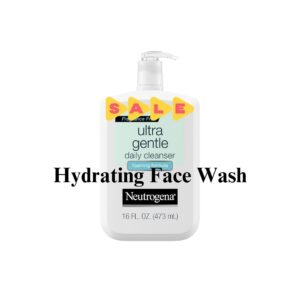The liver is a vital organ that keeps our bodies healthy and functioning properly. It creates vital proteins that the body requires to operate correctly, controls hormones, and filters waste and pollutants from blood. Despite its importance, liver health is something that many of us ignore. We’ll go over five easy strategies to maintain a strong and healthy liver in this blog post, including diet and nutrition, exercise, staying hydrated, liver detoxification, and managing and preventing liver disorders.
1. Nutrition and Diet
The foods we eat have a significant impact on the health of our liver. A balanced and nourishing diet is essential to maintaining the health of your liver. Food choices that limit processing and limit alcohol intake can greatly support the maintenance of good liver health. Fatty liver can be caused by consuming too many high-fat foods, which can cause fat to build up in the liver. A healthy liver can be maintained by eating a well-balanced diet rich in fruits, vegetables, and lean protein.
We also need to include foods that are good for our livers in our diet. Foods high in antioxidants, vitamins, and minerals that support liver health include leafy greens, garlic, grapefruit, and citrus fruits. Chlorophyll, found in abundance in leafy greens, is essential for the removal of toxins from the liver. Garlic contains sulfur-containing chemicals that cause the body to release toxins and activate liver enzymes.
On the other hand, it’s imperative to limit or avoid foods that may be harmful to the liver. Limiting foods such as processed foods, high-sugar foods, and alcohol is necessary to prevent disorders related to the liver.
2. Drink plenty of water
Sufficient hydration is necessary to maintain optimal liver health. Drinking enough water helps the body wash away undesirable toxins, which could otherwise seriously impair liver function. Conversely, if you don’t drink enough water, you may accumulate potentially dangerous poisonous substances in your body, which can seriously harm your liver’s overall health.
It’s important to make sure you consume enough water to avoid these issues. Water’s primary job in the body is to flush out toxic substances while keeping the liver functioning properly. Dehydration can lead to the build-up of toxins, which can seriously harm the liver. You should regularly consume a lot of water to prevent such regrettable consequences. It is generally advised to drink eight glasses or more of water per day. Consider bringing a water bottle with you wherever you go and sipping water during meals to help you reach your objective.
3. Workout
Regular exercise is necessary for liver health and maintenance. Engaging in physical activity can help reduce inflammation, improve liver function generally, and mitigate the formation of fat. Getting moving and exercising can be as easy as taking a stroll, practicing yoga, or lifting weights.
Finding an exercise routine that works for you and giving yourself a chance to stick with it are important factors. It should be kept in mind that even a small amount of exercise can have a big impact on liver health.
4. How to Detox and Cleanse the Liver
Supporting liver health may benefit from the body’s removal of toxins through detoxification and liver cleansing. However, care must be taken when learning how to cleanse the liver because the
majority of these promoted solutions may turn out to be harmful or produce unsatisfactory results.
There are a lot of safe, natural ways to cleanse the liver without running the risk of negative side effects. Regularly consuming lemon water, which is high in antioxidants and vitamin C and aids in liver detoxification, is one such easy technique. Drinking coffee in moderation can protect your liver, ideally without added sugar, milk, or whiteners. Giloy overconsumption may result in immune-related hepatitis. Green tea and herbal teas should be consumed in moderation as there is no proof that they support a healthy liver.
Because a sensitive liver requires care, you should consult a liver specialist before to beginning any liver cleansing or detoxification procedure in order to assess any possible risks or drug interactions.
5. Issues with the Liver
The severity of liver disorders varies greatly, and if treatment is not received, the results could be disastrous. The accumulation of extra fat in the liver causes fibrosis and inflammation, which in turn causes fatty liver disease. Its occurrence may be caused by sedentary lifestyles, high cholesterol, obesity, and diabetes, all of which require management to prevent or treat this problem.
Liver inflammation is a result of hepatitis. Hepatitis can occur in cases A through E. Among them, Hepatitis B, D, and C can result in chronic liver disease and even liver cancer. Acute hepatitis is caused by hepatitis A and E. There are therapies available to tackle kinds C and D, and vaccines available for types A, E, and B to prevent these problems.
Last but not least, cirrhosis is another problem that afflicts a lot of people. It results in fibrosis, or scar tissue, which replaces healthy liver cells and impairs function. Alcohol misuse, viral hepatitis, and non-alcoholic fatty liver disease are all potential contributing causes. Because this illness can result in chronic liver failure, it requires rapid medical intervention.
Avoiding and treating liver problems can be facilitated by changing one’s lifestyle, cutting back on alcohol, keeping a healthy weight, and keeping an eye on significant or chronic conditions like diabetes or increased cholesterol. Finally, in order to improve the prognosis, it is imperative to identify the warning signs and symptoms of these issues and to seek medical attention as soon as possible.
In summary
For general health and wellbeing, liver health must be maintained. Liver health can be supported by incorporating easy lifestyle modifications including exercise, water, a balanced diet, and liver cleansing and detoxification. It’s also critical to understand the warning signs and symptoms of liver issues and, if necessary, seek the care of a liver expert. We can guarantee that our liver operates correctly and maintains the health and strength of our bodies by taking good care of it.






